![]() The information provided by our expert should not constitute a diagnosis of your condition. Always consult a medical practitioner or healthcare provider for a formal diagnosis. By making use of this content, you agree that ConceiveEasy and the expert assume no liability.
The information provided by our expert should not constitute a diagnosis of your condition. Always consult a medical practitioner or healthcare provider for a formal diagnosis. By making use of this content, you agree that ConceiveEasy and the expert assume no liability.
If you and your partner have been trying to conceive a baby for a year and nothing has happened, then it is definitely time to be concerned. If a woman is under 35 years of age and has been trying to conceive for a year or longer, then the inability to conceive or to maintain a pregnancy is infertility. If it’s the man, then you will want to know how to boost low sperm count. Claim Your 20 Free Pregnancy Tests – Click Here
And, whenever young couples who fail to conceive after trying for a year become worried because there is a sign of infertility– but what is the cause, and is there an issue with you or your partner? Most of the time, the woman assumes she has the issue with fertility. Even if she is charting her cycles and she is appearing to be ovulating on a regular basis- though sometimes even then the woman is infertile due to unexplained infertility.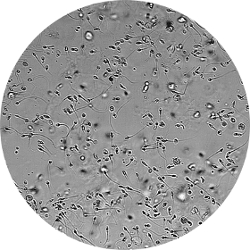
However, if the woman is sticking to a fertility-friendly diet, and is doing everything she can to maximize her chances of conceiving and knows exactly when she is ovulating- but still fails to conceive after trying for a year, then the odds are she is not the one who has the fertility issue. Her partner very well may have a low sperm count or poor sperm quality in general.
What Is A Low Sperm Count?
A low sperm count which is also referred to as oligospermia is when a man has less than 20 million sperm per/ml. That may sound shocking to hear that such a high number of sperm is really not all that high after all. But the fact of the matter is, when you think about it, the sperm has a very long way to travel up to a woman’s reproductive system and so many of them die off during the process.
Therefore, in most cases, if the sperm count is low, there is not any sperm left in order to fertilize the egg. And, in many cases, oligospermia comes with low motility, as well as poor morphology where the sperm are abnormally shaped.
What Causes A Low Sperm Count?
There are many causes for a low sperm count and they are:
- Low testosterone levels. Many men have hormonal imbalances, and if their testosterone levels are low, that will have a negative impact on their sperm count. However, there are more cons than pros when it comes to men going on testosterone therapy.
- Scarring or damage in the testicular area. If a man had surgery in the groin area, there is a good chance that there was scarring from the procedure that is causing blockages in that area. Or, if there was trauma in the groin area, the same result would happen.
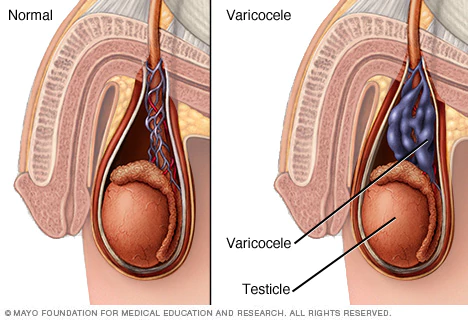
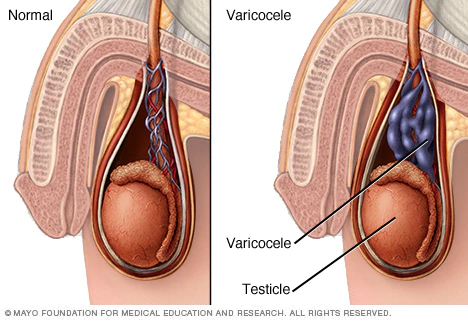
- Varicocele veins. These veins are swollen in the testicle area which can have a negative impact on male fertility. However, this particular condition is reversible by laparoscopic surgery.
- Antibodies that attack sperm. This is an autoimmune condition that some men have, which causes the immune system to attack sperm cells.
- Tumors. Whether tumors in the testicular area are cancerous or not, they will have a negative impact on male fertility.
- Chemotherapy and radiation. If a man had to go on chemotherapy and/or radiation in the past, his fertility would have been negatively impacted. This is why men usually freeze their sperm before going on treatment and these men are aware of the effects that cancer treatment can have on their fertility.
- Celiac disease. A digestive disorder which is caused by not being able to tolerate gluten and this can affect male fertility. However, many men have had higher sperm counts who have celiac disease that adopted gluten-free diets.
- Genetic disorders. Sometimes there is a problem with the Y-chromosome and this will not only have an effect on the sperm count but on the hormonal level in men too. Occasionally, men are born with double-X chromosomes and a Y-chromosome which is called Klinefelter’s syndrome. Other genetic disorders like cystic fibrosis can cause the man to be infertile as well.
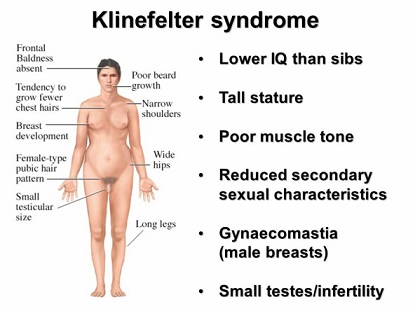
- Undescended testicles. Sometime during fetal development, the testicles fail to descend from the abdomen into the scrotum and this can definitely decrease fertility in men.
- Tubular defects. There may be blockages within the male reproductive system that prevents the sperm from being transported properly which will affect male fertility.
- Medications. Some medications can have a negative effect on sperm count.
- Infections. Many STIs and STD’s can also lower men’s sperm count and even cause them to be sterile which means they have no sperm at all!
- Being in overly warm environments. If a man is a truck driver, he is exposed to heat all the time on the job which will have a negative impact on fertility. Also taking hot baths and hot long showers will also lower sperm count.
- Weight. If a man is extremely overweight or extremely underweight that will cause hormone imbalances and lower sperm count.
Being exposed to chemicals, radiation, and toxins. If a man works in a nuclear power plant or is exposed to many chemicals on the job, that will have a bad impact on his fertility.
- High stress. If he is under a considerable amount of stress, that will also have a negative impact on fertility.
- Drinking, drugs, and smoking. Engaging in those bad habits will kill male fertility.
Those are the most common causes for low sperm count in men. Some of these causes are reversible, and others are not. So now that you are aware of what the causes for low sperm count in men happen to be, you are probably wondering if you can get pregnant by a man who has a low count.
Is It Possible To Conceive With a Low Sperm Count?
The technical answer to this question is, yes you can. Even though millions of sperm die off while traveling up the female reproductive tract, there could be one strong sperm that somehow is able to meet the egg right after it has been released. But the odds are extremely low, and attempting to conceive on your own with a low sperm count can take a very long time.
Therefore, this means that if the low sperm count is reversible such as the man improving his lifestyle and even changing jobs (if possible), then he needs the opportunity to make these changes in order to improve his sperm count.

How Do I Boost Low Sperm Count?
Here are steps that any man can take to maximize his chances of increasing his sperm count:

Stop smoking and doing drugs
Stopping these bad habits alone can help dramatically improve sperm count levels in men.
Reduce alcohol intake
Men do not have to completely stop drinking alcohol in order to improve their sperm count levels. But they need to reduce how much they drink. Research has indicated men are fine if they stick with having 5 standard drinks or less a week.
Avoid heated areas
That means no more hot baths and hot showers, and no more hot tubs and spas. Heat is very detrimental to the sperm production. That also means to wear boxers and loose fitting pants instead of briefs and tight-fitting jeans which can bring heat to the groin area which can have a negative impact on the sperm count.

Stick to a diet high in antioxidants
Did know that antioxidants can clean up free radicals, which means new sperm produced will be fresh and no longer damaged? Foods that are high in antioxidants are berries, bright colored fruits, and vegetables, whole grains, nuts, seeds, and dark chocolate.

Take male fertility enhancing multivitamin
The sperm-producing vitamins are Vitamin C, Vitamin E, selenium, zinc, folic acid, L-Carnitine, glutathione, and CoQ10. It is important for men to take this kind of multivitamin before trying to conceive just like it is important for women who need to take their prenatal vitamins and folic acid supplements.

Eat foods that are fertility-friendly for men
And, many foods that are high in antioxidants are also high in these vitamins. Oysters are also full of zinc which is important for sperm production. Men also need to stick to eating foods that are loaded with these vitamins as well.

Attain an acceptable BMI
If the man is extremely overweight or underweight, then he needs to make major dietary changes. Weight extremes can throw off hormonal levels. Once he reaches an acceptable BMI, then his hormonal levels will be normal and so will his sperm count.

Learn to manage stress
Stress is part of life, and it cannot be avoided. It is all about how stress is managed more than dealing with stress. He may need to take up yoga or meditation, and start doing things to unwind after a long day other than having a drink. Watching a light comedic show and listening to calming music will help reduce stress levels.

Reduce exposure to toxins
If he is in a field where he is exposed to pollutants such as pesticides, toxic fumes, lead and so on, then he will have to do what he has to do to reduce exposure to these harmful elements and wear protective clothing.
These are the steps that every man who is trying for a baby needs to take in order to maximize his chances of improving his sperm count. However, in some cases where sperm count will always be low due to scarring, genetic or structural factors, or in other cases where damage for the low count cannot be reversed- then fertility intervention will have to be looked into.
If My Sperm Count is Still Low, Now What?
Intrauterine Insemination (IUI)
One procedure that has been known to work for couples who are infertile due to irreversible low sperm count is IUI. However, the sperm count has to be over 2 million in order for this procedure to be successful. The way it works is that the woman goes on Clomid whether or not she needs it, to time ovulation.
She will be monitored through bloodwork and ultrasounds. On the day she is ready to ovulate, the man has to bring in a sperm sample to be washed and prepared.
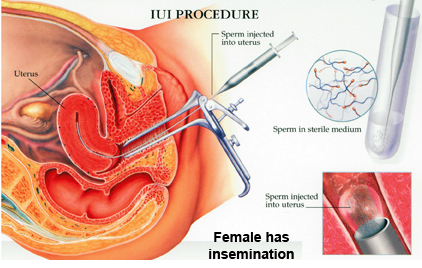
Then the woman has to lie on her back on the table in the room where the procedure will be done. Once the sperm is washed, it will be injected into a catheter which will bypass the female reproductive tract and will go past the cervix and into the uterus.
The cervix is wide open and soft due to the fact this is her fertile time so it won’t be painful. After the sperm is injected, she is to lie down for a half an hour to allow gravity to pull the sperm towards the egg that is about to be released. Then in 2 weeks, she will get tested for pregnancy.
IUI is usually successful within 6 attempts for women that are under 35 years of age.
However, for sperm counts that are less than 2 million and for multiple failed attempts, then fertility specialists will need to move to the next step.
Intracytoplasmic Sperm Injection (ICSI)
ICSI is an IVF procedure that is done in cases where sperm counts are severely low and/or IUI failed to work. This is when the sperm is injected directly into the egg. That means this procedure is far more invasive and expensive than IUI.
The woman will have to go on many fertility drugs to have her eggs mature at once. And she will be monitored for that. On the day that she is ready to have her eggs retrieved, she will be sedated for the retrieval. Then the sperm sample will be taken and washed.
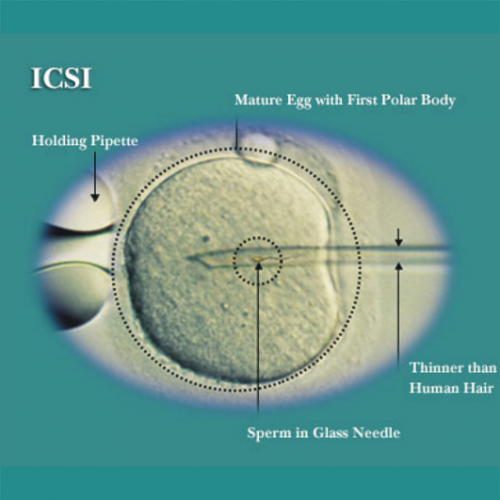
The sperm will be individually injected into each egg and that is how fertilization when it comes to severely low counts can happen. The embryos will be monitored over 3 to 5 days and the healthy ones will be transferred back into the womb through a catheter. The woman will need to go on progesterone and will take a pregnancy test 11 to 14 days after the transfer to see if pregnancy occurred.
Therefore, it most definitely is possible to get pregnant with a low sperm count. However, the way it happens will depend on whether or not the cause for the low sperm count is reversible- unless there is a stroke of good luck and it happens naturally!











Comments